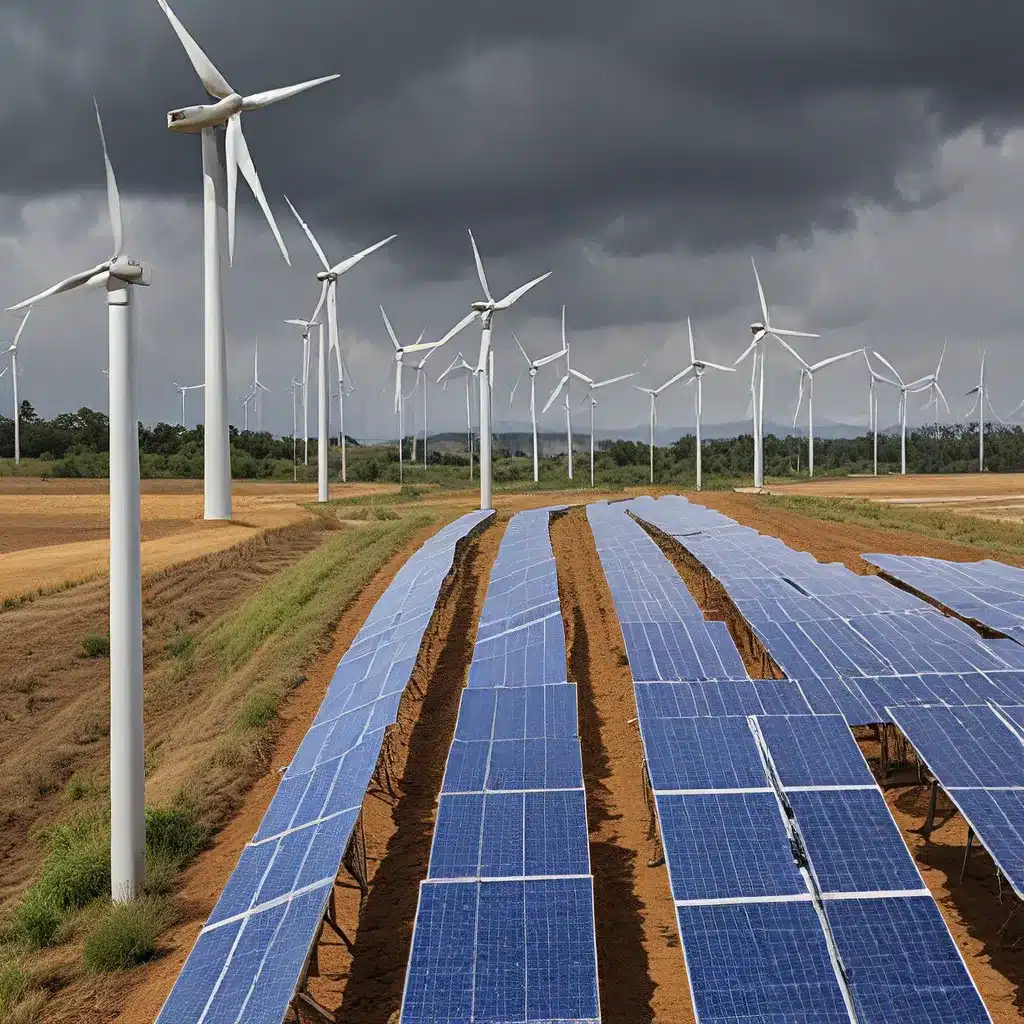
The Urgent Need for Climate Action
As I sit here, staring out the window at the world around me, I can’t help but feel a growing sense of unease. The effects of climate change are becoming increasingly hard to ignore. Extreme weather events are battering communities across the country, causing billions in damages and upending the lives of millions. From devastating wildfires and crippling droughts to record-breaking heat waves and severe flooding, the signs of a changing climate are all too apparent.
Yet, it’s not just the natural disasters that worry me. It’s the profound impact these events are having on people’s lives, particularly the most vulnerable communities – the low-income neighborhoods, the communities of color, the individuals with disabilities. These are the folks who are bearing the brunt of this crisis, often with the fewest resources to cope. It’s heartbreaking to see how climate change is exacerbating existing inequities, making life even harder for those who are already struggling.
I can’t help but wonder, what kind of world are we leaving for future generations? Surely, we have a moral obligation to take urgent action, to do everything in our power to address this existential threat and safeguard the planet for our children and grandchildren. And that’s why I’m so encouraged by the steps the Biden administration is taking to tackle the climate crisis head-on.
Investing in a Clean Energy Future
The recently passed Bipartisan Infrastructure Deal represents a critical step forward in the fight against climate change. This historic piece of legislation is pouring billions of dollars into clean energy initiatives that will not only reduce greenhouse gas emissions, but also strengthen the resilience of our energy infrastructure.
One of the most exciting aspects of the deal is the investment in electric vehicle (EV) charging infrastructure. By building out a nationwide network of EV chargers, the government is making it easier for Americans to ditch their gas-guzzling vehicles and embrace cleaner, more sustainable transportation options. This is a game-changer, not only for the environment but also for the domestic manufacturing of EVs and batteries, which will create good-paying union jobs and help the US maintain its competitive edge in the global race for clean energy innovation.
But the Bipartisan Infrastructure Deal goes beyond just EVs. It’s also investing heavily in modernizing our nation’s power grid, building thousands of miles of new resilient transmission lines to facilitate the expansion of renewable energy sources like solar, wind, and geothermal. This is crucial, as a more robust and flexible grid is better equipped to withstand the extreme weather events** that are becoming more frequent due to climate change.
And let’s not forget about the investment in clean school buses. By replacing the aging diesel fleet with zero-emission vehicles, we’re not only reducing harmful air pollution, but also protecting the health and well-being of our children, who are often the most vulnerable to the effects of environmental hazards.
Building Resilient Communities
Resilience is the key word here, and the Bipartisan Infrastructure Deal is taking a holistic approach to strengthening the resilience of our physical and natural systems. From upgrading port and airport infrastructure to cleaning up legacy pollution and expanding access to clean drinking water, this legislation is tackling the climate crisis on multiple fronts.
One particularly important aspect of the deal is the investment in weatherization and energy-efficient upgrades for homes and buildings. By making our built environment more energy-efficient and resilient, we can not only reduce energy costs for families and businesses, but also protect them from the impacts of extreme weather. This is especially crucial for low-income communities and communities of color, which are often disproportionately affected by the consequences of climate change.
But the work doesn’t stop there. The Biden administration is also pairing the Bipartisan Infrastructure Deal with the Build Back Better Framework, a complementary set of investments that will further accelerate the transition to a clean energy economy. Together, these initiatives have the potential to reduce US emissions by over one gigaton this decade, putting us well on our way to meeting the president’s ambitious climate goals.
The Importance of Collaboration and Innovation
As exciting as all of this sounds, I know that the path to a sustainable energy future is not without its challenges. Climate change is a complex, multi-faceted issue, and tackling it will require a concerted effort from all sectors of society. That’s why I’m encouraged to see the Biden administration working across the aisle to unite the country and deliver results for working families.
Collaboration will be key, as will continued innovation in clean energy technologies. That’s why I’m excited about the Grid Modernization Initiative and the Energy Storage Grand Challenge Roadmap, which are bringing together public and private partners to develop the tools and technologies needed to modernize the grid and enhance resilience. And let’s not forget about the research and development being done to advance next-generation technologies like advanced nuclear reactors, carbon capture, and clean hydrogen – all of which will be crucial in our fight against climate change.
Of course, there’s still a long way to go, and I know that the road ahead won’t be easy. But when I look at the scale and scope of the investments being made through the Bipartisan Infrastructure Deal and the Build Back Better Framework, I can’t help but feel a sense of hope and optimism. This is our moment to rise to the challenge, to create a more sustainable and resilient future for ourselves and future generations. And I’m proud to be a part of this journey, working alongside Firewinder and other clean energy leaders to make that vision a reality.
So, let’s roll up our sleeves and get to work. The climate crisis may be daunting, but together, I know we can overcome the obstacles and build the clean energy future we all deserve.

